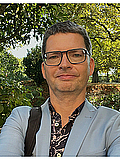Shadow Economies of the Internet: An Ethnography of Clickfarming
Projektleiter:
Finanzierung:
Contemporary digital media are radically transforming culture and politics. Against a backdrop of "fake news” and "foreign intervention,” politicians, media, companies, and celebrities alike are struggling to draw a dizzying array of publics into their fold. From search engines via news platforms to social media, digital media is consequently characterized by an increase of evaluative practices (Espeland and Sauder 2007; Helgesson and Muniesa 2013). Key instruments in this process are evaluative mechanisms or "judgment devices” (Karpik 1996) such as "like” buttons, views, follower counts, and popularity rankings, which are ubiquitous in social media and across the internet. Likes on Facebook, for instance, may determine Google’s search engine ranking, build or terminate political or entertainment careers, and even influence financial markets.
Today’s digital "like economy” (Gerlitz and Helmond 2013) assumes that such judgments are legitimate and authentic, that is, voluntarily and freely provided by normal users. Given the pace by which evaluations have become integral to the circulation of information, however, it has recently caused widespread concern that this "like economy” is increasingly compromised. The 2016 U.S. presidential election was a watershed moment in this respect, as it became evident that politicians have paid for millions of Twitter followers, that Facebook likes are regularly purchased, and that private data brokers and analysts use social media data to monitor and manipulate voter constituencies (Boult 2016; Cadwalladr 2017). With the rise of "fake news,” manipulated online communication has moved to the center of political conflict and conspiracy theory.
This project investigates the devices, actors, sites, and processes that are at the center of this developing controversy: so-called "click farms,” persons or companies selling likes, views, and followers via unregulated online marketplaces. Estimates of fraudulent online traffic range from 10 to 90 percent, depending on the digital media targeted (ANA 2015; Elgin et al 2015). Previous research suggests that the majority of click farms are based in Asian countries such as Indonesia, the Philippines, Bangladesh, and India, while most click buyers are concentrated in North America and Europe (Farooqi et al. 2015). Rather than taking this North-South dichotomy for granted, however, the project aims to empirically study how clicks are assembled into a "global form” (Ong 2006), or commodity, that emerges through the transnational interactions between sellers, buyers, and online marketplaces.
Methodologically, the project combines ethnographic fieldwork among click farmers with media industry analysis. In doing so, it contributes to a burgeoning area of interdisciplinary work at the intersection between Social Anthropology and Media Studies (e.g. Ortner 2015; Parks and Starosielski 2015; Curtin and Sanson 2016). Click farming has only been sparsely researched, and primarily in ethical and regulatory terms, through a focus either on digital labor or internet marketing fraud. This project widens the view, and suggests a perspective of "ethical inversion” that takes the South rather than North as a starting point regarding reigning digital norms and ideals, with the aim to critically re-evaluate the "like economy.” In doing so, it develops empirically grounded social theory and a broader analytical grasp of today’s digital media ecology. Preliminary research conducted by the applicants in early 2017 shows that empirical access to informants is well feasible.
Today’s digital "like economy” (Gerlitz and Helmond 2013) assumes that such judgments are legitimate and authentic, that is, voluntarily and freely provided by normal users. Given the pace by which evaluations have become integral to the circulation of information, however, it has recently caused widespread concern that this "like economy” is increasingly compromised. The 2016 U.S. presidential election was a watershed moment in this respect, as it became evident that politicians have paid for millions of Twitter followers, that Facebook likes are regularly purchased, and that private data brokers and analysts use social media data to monitor and manipulate voter constituencies (Boult 2016; Cadwalladr 2017). With the rise of "fake news,” manipulated online communication has moved to the center of political conflict and conspiracy theory.
This project investigates the devices, actors, sites, and processes that are at the center of this developing controversy: so-called "click farms,” persons or companies selling likes, views, and followers via unregulated online marketplaces. Estimates of fraudulent online traffic range from 10 to 90 percent, depending on the digital media targeted (ANA 2015; Elgin et al 2015). Previous research suggests that the majority of click farms are based in Asian countries such as Indonesia, the Philippines, Bangladesh, and India, while most click buyers are concentrated in North America and Europe (Farooqi et al. 2015). Rather than taking this North-South dichotomy for granted, however, the project aims to empirically study how clicks are assembled into a "global form” (Ong 2006), or commodity, that emerges through the transnational interactions between sellers, buyers, and online marketplaces.
Methodologically, the project combines ethnographic fieldwork among click farmers with media industry analysis. In doing so, it contributes to a burgeoning area of interdisciplinary work at the intersection between Social Anthropology and Media Studies (e.g. Ortner 2015; Parks and Starosielski 2015; Curtin and Sanson 2016). Click farming has only been sparsely researched, and primarily in ethical and regulatory terms, through a focus either on digital labor or internet marketing fraud. This project widens the view, and suggests a perspective of "ethical inversion” that takes the South rather than North as a starting point regarding reigning digital norms and ideals, with the aim to critically re-evaluate the "like economy.” In doing so, it develops empirically grounded social theory and a broader analytical grasp of today’s digital media ecology. Preliminary research conducted by the applicants in early 2017 shows that empirical access to informants is well feasible.
Kontakt

Prof. Dr. Patrick Vonderau
Martin-Luther-Universität Halle-Wittenberg
Institut für Musik, Medien- und Sprechwissenschaften
Universitätsring 4
06108
Halle (Saale)
Tel.:+49 345 5523501
weitere Projekte
Die Daten werden geladen ...

